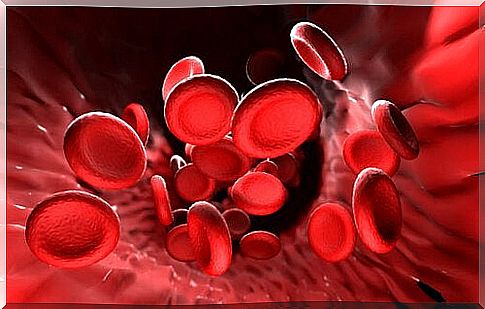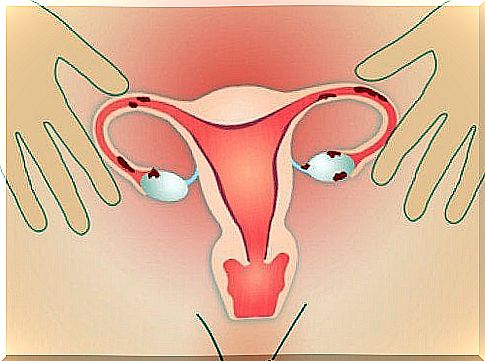Coagulated Blood When You Have Your Period: 5 Things You Should Know

When you have your period, the blood can coagulate and then blood clots can come out. This is quite common, but you may want to see if this occurs associated with other symptoms.
It does not hurt to consult a gynecologist. As the experts tell us, every body is unique and all women can experience their menstruation in different ways, so the presence of blood clots is not necessarily something to be intimidated by.
We give you all the details below.
Why does coagulated blood occur when you are menstruating?
To better understand why blood clots can occur when you are menstruating, we have compiled a list of useful facts:
- The walls of the uterus tend to change gradually to prepare your body for a possible pregnancy. They become thicker and fill with new tissue, so they can support a fetus if you become pregnant.

- In the absence of a pregnancy, extra layers that have formed along the lining of the uterus will gradually be released, causing the actual menstruation.
- When you get a wound, your blood tends to coagulate. This is the body’s natural defense that keeps us from losing too much blood. However, when you have your period, your blood needs to flow more freely to be expelled.
- This is why the uterus produces an anticoagulant. If your period is very heavy, it is the “natural coagulant” that goes out, and you will usually notice some lumps in the blood.
- Usually, these lumps will vary in size from 5 mm to 5 cm, and they are more common in women who have very heavy periods. Those with lighter periods may never experience these symptoms.
- Another point to remember is that the lumps are more often formed while sleeping, which can result in a thicker and sometimes scary mass.
Things to remember about coagulated blood when you have your period

1. Iron deficiency
Iron deficiency can sometimes be a real problem for women.
- It is common for a heavy period to cause your levels of this mineral to drop, but another aspect of it is that the less iron you have in your body, the more difficult it is for the uterus to generate the “natural anticoagulant”, which means that Anemia in turn can lead to more coagulated blood.
- This is why you should regularly check your iron levels and take supplements if they are recommended by your doctor.
2. Small hormonal imbalances
It is common for both young girls and women who have recently given birth to have problems with coagulated blood.
This is due to small imbalances in estrogen and progesterone, which can also occur just before menopause.
3. A miscarriage
This is something that is important to consider. Unfortunately, if you try to get pregnant and notice a yellowish or greyish coagulation, it may signal a miscarriage.
Never hesitate to consult a doctor or gynecologist.
4. Endometriosis

Endometriosis is the silent disease that millions of women suffer from. One thing to keep in mind is that if your period is extremely painful and disabling, it is possible that you also suffer from this disease.
- Endometriosis affects the female genitals and is characterized by the formation of very dense lesions around the uterus and other nearby organs. All of this leads to pain, which is more common during menstruation, and you will also see lots of clotted blood clots.
5. Gynecological diseases
As mentioned at the beginning, the presence of coagulated blood is common in many women. However, if your period is painful, you should always discuss it with your gynecologist.
- Pelvic infection, for example, is usually associated with severe abdominal pain in the pelvis and is also linked to the presence of coagulated blood during menstruation.
- This type of disease, caused by a type of bacteria, results in an infection that spreads from the cervix to the uterus, fallopian tubes, or ovaries.
- It is painful and is one of the most common gynecological diseases. Therefore, it is important that you consult a professional if you are in doubt or feel uncomfortable.
It is also known that the presence of fibroids or cysts is also associated with blood clots when you have your period. So while the lumps may be normal, it never hurts to mention them when you go to your annual checkup.








